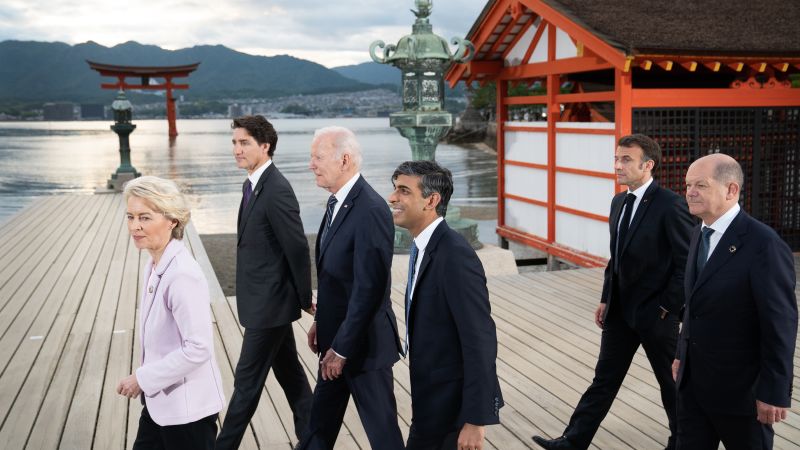The Group of 7 leaders, who will gather for their annual meeting in Italy, are facing a variety of challenges at home, including elections, scandals, and waning influence. This has raised questions about the effectiveness of the G7 as a “steering committee of the free world” amid the discontent and anger of their own populations. The recent rise of far-right parties in European Parliamentary elections has added to the anxiety about a populist resurgence, with concerns about migration and the defense of Ukraine being driving factors for the rightward shift.
At the upcoming G7 summit, Ukrainian President Volodymyr Zelensky will attend and hold a joint news conference with US President Joe Biden. The leaders are under pressure to find ways to turn around the battlefield momentum in Ukraine after delays in American support. Diplomats were finalizing plans to provide financial aid to Ukraine through a complex plan involving loans and frozen Russian assets. The summit will also see the presentation of a new bilateral security pact with Ukraine, highlighting the importance of the G7’s work in addressing global security challenges.
The leadership changes in the United States and other G7 countries are adding urgency to the discussions at this year’s summit. The uncertain political landscapes in various member countries are complicating efforts to address key issues such as China and global assets. The summit host, Italian Prime Minister Giorgia Meloni, is seen as one of the most stable leaders among the group, with a recent boost in political support. Despite differences on certain topics, she has shown solidarity with Biden on the issue of aiding Ukraine, highlighting the importance of unity within the G7.
Leaders of France, Germany, Britain, Canada, and Japan are all facing political challenges that could impact their ability to govern effectively. Macron in France is at risk of losing power in parliamentary elections, Sunak in Britain is expecting his party to lose power, Trudeau in Canada is unpopular, and Kishida in Japan is dealing with a corruption scandal. Biden, who has emphasized the importance of traditional alliances and defense of the West, is facing a strong challenger in the next election. The uncertainty surrounding future leadership changes adds to the complexities of the G7 discussions.
The potential return of former President Trump to the G7 table next year adds another layer of uncertainty to the gathering. The memories of past animosities and disagreements at G7 summits, such as battles over climate, trade, and Russia’s participation, loom over the current political landscape. Trump had previously questioned the utility of attending the G7 meetings, expressing frustration with the experience. The ongoing challenges and political dynamics within the G7 countries highlight the importance of effective leadership and cooperation in addressing global issues.


